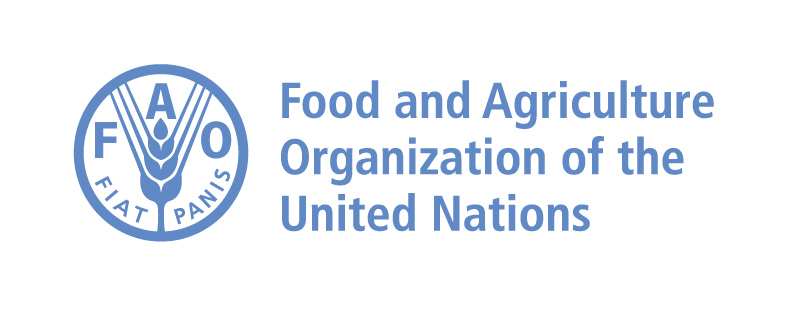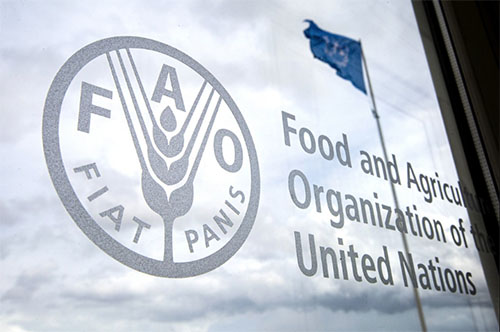

An introduction to plant health
The Food and Agriculture Organization of the United Nations (FAO) says that people depend on plants for 80 per cent of the food we eat and 98 per cent of the oxygen we breathe.
Unfortunately, international travel and trade has been associated with the introduction and spread of plant pests that negatively impact the phytosanitation or plant health.
Plant health, also referred to as phytosanitation, is a general term that addresses emerging risks such as pests, diseases and weeds, integrated pest management, and innovation in plant protection.
The FAO also states that invasive pest species are one of the main drivers of biodiversity loss and they threaten the delicate web of life that sustains Earth. Pests and diseases have also been associated with rising temperatures which create new niches for pests to populate and spread. In response, the use of pesticides may increase and that causes harm to pollinators, natural pest enemies, and organisms that are important for a healthy environment.

Protecting plant health is essential by promoting environmentally friendly practices such as integrated pest management. International standards for phytosanitary measures (ISPMs) in trade also help prevent the introduction and spread of plant pests across borders.
Jamaican hot peppers
The ‘Improving Phytosanitary, Food Safety and Market Access Opportunities along the Hot Pepper Value Chain in Jamaica’ project, seeks to, among its many goals, strengthen the technical and resource capabilities of stakeholders to have consistent local and international market access and support the sustainable and resilience practices within the sector.
Slated to be complete in 2025, the project also aims to address the issues affecting Jamaica being able to export high quality and consistent plants of pepper.
In an interview with Our Today FAO Jamaica said that the project focuses on three main areas: the phytosanitary issues affecting hot pepper export, meeting international standards for food safety in the export of processed and fresh peppers, and “the third aspect of the project is looking at what we refer to as the ‘agri-food systems component’ and that focuses on the production and practices being used on pepper in Jamaica, how that is affected by climate conditions, and it impacts the supply and storage of pepper.”
The project is prioritising plant health and protection, and recognising its importance in trade and facilitating that trade as well as looking at improving the phytosanitary, food safety, and market access requirements for hot pepper here in Jamaica.
FAO Jamaica
With the observation of International Day of Plant Health, initiatives such as the ‘hot pepper value chain project’ appropriately intertwines with the day’s aims of ensuring plant health which can boost economic development and in the long run move towards ending hunger, as well as protecting biodiversity and the environment.
“The project is prioritising plant health and protection, and recognising its importance in trade and facilitating that trade as well as looking at improving the phytosanitary, food safety, and market access requirements for hot pepper here in Jamaica,” said FAO Jamaica.
Since the project’s official launch, two of the key activities from the phytosanitary component have taken place. The first is a gap assessment and the second is an emergency response plan for introduced new or exotic pests, which are pests that currently have not been established in the country.
“The gap assessment is to see exactly where we are in the hot pepper sector, but specifically looking at the phytosanitary aspect. So, we’ll be looking at some of the pests being intercepted from Jamaica in regards to hot pepper as well as assessing the support system in place for the regulatory players in the sector. So, for example, what does inspection look like? This means field inspection and port of exit inspection. Is there some support required there? The gap assessment will also be look at issues faced by processors and how they can be supported,” FAO Jamaica said.

“Then, we’ll go right back to our producers, our farmers, to identify what support they need from a production perspective. We will also be engaging our exporters regarding how they process the fresh peppers to ensure that it is meeting phytosanitary requirements and certainly the export market requirements,” they continued.
The emergency response plan will be a response to any newly introduced pest of pepper if they were to come into the country.
“If a new pest of pepper or an exotic pest comes to Jamaica, it would significantly affect the country’s hot pepper production. We have to bear in mind that while the project is focusing on hot pepper, they belong to a family of plants called Solanaceae and they include sweet pepper, Irish potato, and tomatoes. So we would also have to factor in pests of those crops to be able to ensure that Jamaica has a response plan in place. We do this so it wouldn’t be a case where the pest comes in, we discovering it and we’re running behind it to try and eradicate it,” explained FAO Jamaica.
The organisation also shared that the second activity would include a simulation to test and strengthen the emergency response plan.

Factors that impact the plant health of peppers
Plant health cannot be seen as stand alone. It is connected to all aspects of crop management. For hot peppers, one of the main constraints in plant health is pests.
“When we say pests, it includes disease causing agents. Sometimes we say ‘pests’ and our farmers interpret that as if we’re only referring to insects or mites. By insects, we mean the aphids, thrips and the white flies. However, pests, also refer to the viruses and fungi that are also causing problems for them. It affects the economic value of the hot peppers, it affects farmers’ livelihood, and food security for the country,” FAO Jamaica told Our Today.
They also identified pre and post harvest handling as a factor that affects plant health and said that pepper is very delicate.
“So even in reaping pepper, you have to ensure that the stem is not plucked out of the pepper,” they said.

Climate change is also a major factor impacting plant health.
“A study had been done by the International Plant Protection Convention (IPPC) and they really cemented scientifically that climate change is having a negative impact on, not just pest spread, but the impact of pests. We note that when you have cooler conditions, you’re likely to have less life cycles of a pest and, therefore, less impact that it has on the plant. By extension, the yield of the plant and the productivity increases,” shared FAO Jamaica, who noted that with warmer temperatures, pest life cycles increase per year.
They also mentioned cross hosts pests that migrate from traditional host plants (plants that certain pests are known to feed on) to alternate host plants (new plants that they move to due to changes in climate conditions).

“So when you try to manage a pest, you have to now think about other factors that host plants like that may be in the vicinity that should be considered not just in your planting, but when you’re doing your crop rotation,” they said.
FAO Jamaica also highlighted soil health and management. Though the hot pepper project will not directly address soil health and management, it also affects plant health. They noted that there may be soil borne diseases that should be considered as well as the nutrition of the soil and the soils water retention characteristics.
Clean Seed Certification
Generally, a clean seed is one that is healthy and free of disease, as well as material such as dirt, sand, and twigs. One of the game changers of the hot pepper project is the support that the project will be giving to Jamaica’s Clean Seed Certification programme.
FAO Jamaica shared that, “one of the major constraints to the aspect of hot pepper production is clean seeds. In fact, if you start out with clean seeds, some of the diseases caused by fungus would be much less and we have seen that first hand when we have done our visits to our hot pepper farmers.”

They said that the clean seed component of the project will be assisting the Jamaican government through the Ministry of Agriculture and Fisheries. Technical support in terms of drafting seed regulation, as well as the provision of knowledge products will occur.
“We’ll assist them with developing best practices and operating procedures for the clean seeds management programme. This includes some manuals that will ensure the sustainability of the project in knowledge transference in the future,” said FAO Jamaica.
The hot pepper project will also plans to provide support through their integrated pest management approach in the nurseries to ensure that they start with clean seeds. There will also be a financial component to help chart the financial structure for the clean seed programme.
RELATED Project launched to strengthen int’l competitiveness in hot pepper industry
Send feedback to [email protected]







Comments